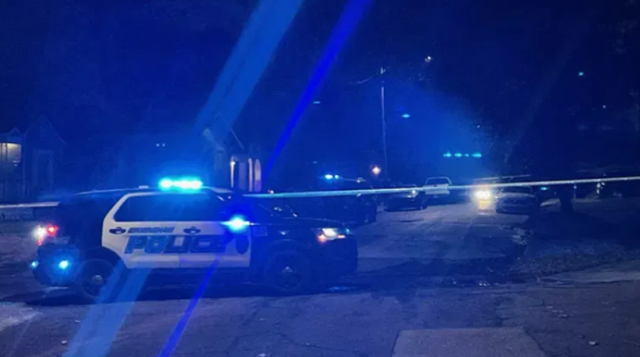By Alaina Bookman | abookman@al.com
Advocates working with the Hispanic Interest Coalition of Alabama (HICA) often receive calls from people who want help from police, but feel unable to accurately communicate their needs through a language barrier.
Jefferson County has a growing Hispanic population and the organization says it needs help getting resources to residents who don’t speak English. Over the next month, coalition members will work with the Jefferson County Sheriff’s Office to lead multiple cultural and linguistic law enforcement training sessions.
So far in 2023, the coalition has served 188 victims of domestic violence. It can be hard for people who speak Spanish or an indigenous language to accurately communicate their needs to police, advocates say, or find the right resources. Many people rely on their children to act as English translators, which can result in children hearing and recounting traumatic details. And sometimes, language barriers mean that a victim is arrested instead of their abuser.
“Language access is a concern, it’s a challenge, it’s a barrier. I think it is the top concern we as a state should improve upon and do better,” Strong Families Project Manager Angelica Melendez said.
Through Sept. 2023, the coalition has served 408 victims of crimes, 324 of which were noted as having limited English proficiency.
“We take into consideration the cultural factors and beliefs people bring to the table. We serve a lot of undocumented victims, who perhaps don’t have the same access to resources as someone who is a U.S. citizen. We know how to navigate that,” Melendez said.
Language barriers, fear of law enforcement and fear of deportation are barriers some Hispanic and Latino people face when choosing to report a crime.
Coalition members say Alabama, like many southern states, has a growing Limited English Proficient population, but very little infrastructure available to support this population.
In 2020, Hispanic people made up about 5% of the state’s population, or about 264,000 people, according to the U.S. Census Bureau.
Availability Of Interpreters
Coalition members say there is a gap between federally mandated standards for language services and the availability of interpreters.
Many courts and law enforcement agencies do not have interpreters on their staff, leaving non English speaking individuals without the resources they may need in urgent or high stakes situations.

“Recognizing that people have cultural linguistic needs and adapting your approaches and perspective when you work in a services agency is super important to changing outcomes. The government and the state should also recognize that it’s a law to provide meaningful access to services,” Melendez said.
The coalition serves clients who speak a wide range of indigenous languages, not just Spanish. Melendez said language barriers can be detrimental when attending court or even life threatening when reporting crimes.
“We deal with a lot with domestic violence cases and a mom that may have been strangled or raped is not going to share those details with her child and that could be the difference between a misdemeanor offense or a felony,” Ana Okert, the coalition’s survivor advocate said.
Ockert has led a few of the Jefferson County cultural and linguistic law enforcement trainings.
“We’ve talked about the importance of just learning who you’re serving,” Ockert said.
Lieutenant William Powell, Jefferson County Sheriff’s Office training coordinator, said he encourages his deputies to attend community events and learn what resources are available for Hispanic and immigrant residents.
“We were having some language barriers when our deputies would make contact with Spanish speaking citizens. That was one way to allow better interaction with deputies and the Spanish speaking community,” Powell said.
He said the cultural and linguistic training sessions are coupled with “Spanish for law enforcement” classes and implicit bias training.
“In the last couple of years, there’s kind of been a decay in our relationship with the community. So we’re trying to rebuild. We have to get with the stakeholders, get with the community leaders, talk with people, try to find out what they need and what their expectations are of us,” Powell said.
“We Understand Their Fear”
The coalition’s Victims of Crime program provides clients with free intake assessment, crisis intervention, safety planning, counseling, support groups, economic assistance, relocation, protection from abuse orders and court accompaniment.
“If basic needs are not addressed, they’re not going to feel confident or have what they need in order to succeed, to be more confident in the criminal justice system,” HICA Family and Victim Advocate April Alvarez said.
“Accessing services in their language, just knowing their rights, having someone who is familiar with the system helps a lot and makes them feel like they are not alone or trapped.”
Alvarez urges law enforcement to “do their best” to educate themselves about the resources available for Spanish-speaking victims of crimes, such as reaching out to the coalition’s advocates to support victims.
Maria Elena Frias, the coalition’s citizenship and immigration program manager, helps undocumented clients apply for humanitarian visas.
Humanitarian visas were created by the United States Citizenship and Immigration Services to encourage undocumented victims of crimes to report crimes.
Frias said case management can last for years, sometimes more than a decade, as visas can take up to 15 years to be granted after applying, and 5 to 7 years for work permits.
“The work permit for victims, especially when they’re starting over on their own, without the financial support of the perpetrator, is a big deal for them,” Frias said. “Having a work permit is life changing for them.”
“Sometimes deportation is an issue. They are not able to find a job because they don’t have a work permit. Sometimes that is one of the reasons victims of domestic violence stay in their abusive relationships, because how are they going to support their children,” Melendez said. “We understand their fear.”
Daniel Novoa, Strong Families safe communities navigator, works on the education and prevention side of the coalition. He said members are working to implement an in-school program to discuss what healthy relationships look like.
“If you provide it in the schools, in the court system, in any entity that could provide a social service, then you’re ensuring people that they can get services and resources to assure their safety,” Ockert said.
“If better language access is provided, then everything else falls into place so that people can thrive and be productive members of society.”
Read more: Learn more about AL.com’s new violence prevention reporter, Alaina, and support her work.





